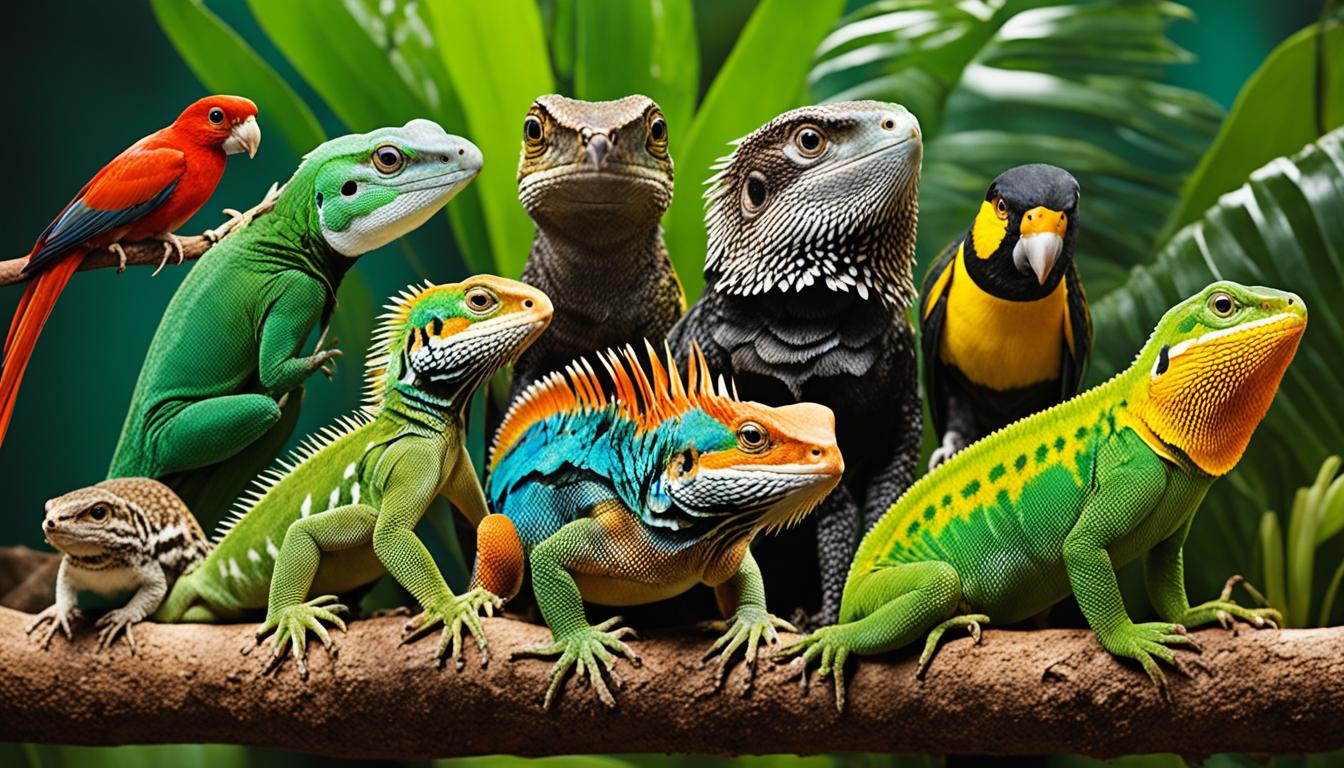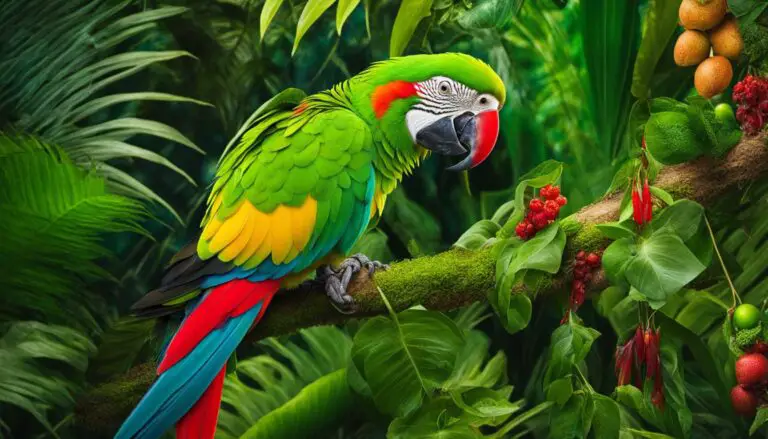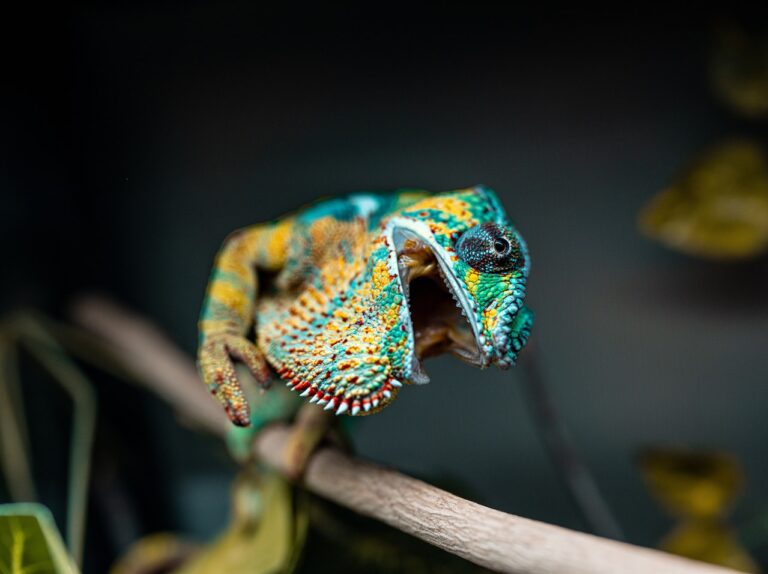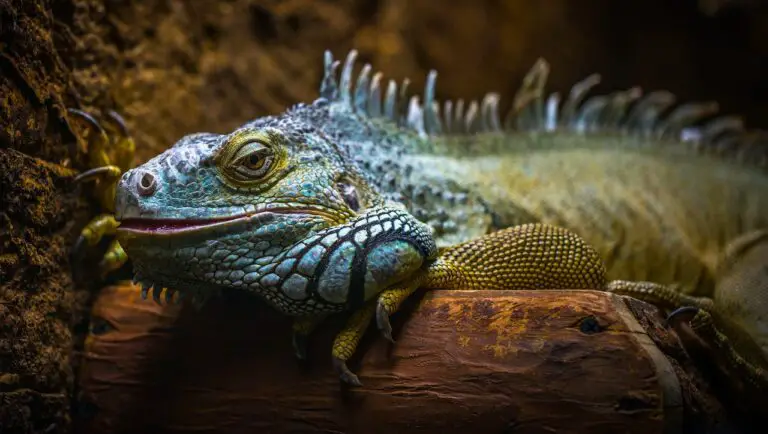Exotic Pet Care Instructions | Ultimate Guide
Welcome to the Ultimate Guide to Caring for Exotic Pets. In this comprehensive guide, we will provide you with expert tips and essential information to ensure the health and happiness of your unique companions. Owning an exotic pet comes with great responsibility, and proper care is crucial in meeting their specific needs. From diet and health to creating an ideal habitat and fostering proper behavior, we will cover everything you need to know to provide excellent care for your extraordinary friend. With the right knowledge and resources, you can create a thriving environment for your exotic pet and enjoy a fulfilling companionship.
Key Takeaways:
- Follow expert tips and guidelines to ensure the health and happiness of your exotic pet.
- Proper care is essential in meeting the specific needs of exotic pets.
- Create an ideal habitat that mimics their natural environment to promote their well-being.
- Provide a balanced and tailored diet to meet the unique nutritional requirements of your exotic pet.
- Foster proper behavior through socialization and enrichment activities.
Embarking on the Journey of Exotic Pet Care
Embarking on the journey of caring for an exotic pet requires careful consideration and preparation. Before bringing home your unique companion, it’s essential to understand the commitment involved and ensure that you are fully equipped to meet their specific needs. This section will guide you through the initial steps of adopting an exotic pet, including choosing the right species, understanding the necessary care routines, and familiarizing yourself with the legal and ethical obligations of exotic pet ownership. By starting your journey with a solid foundation of knowledge and preparation, you can provide the best possible care for your exceptional pet.
“Caring for an exotic pet is a unique experience that requires knowledge, dedication, and a genuine passion for the wellbeing of these extraordinary companions.” – Olivia Jones, Exotic Pet Enthusiast
When embarking on the journey of exotic pet care, it’s crucial to educate yourself about the specific requirements and challenges associated with keeping unusual pets. Below are a few essential tips to help you get started:
- Research the right species: Explore various exotic pet species to find one that aligns with your lifestyle, time commitment, and capability to meet their unique needs. Consider factors such as size, diet, habitat, and longevity to make an informed decision.
- Understand care routines: Exotic pets often have specific care routines that differ from traditional pets. Familiarize yourself with the dietary needs, habitat requirements, and grooming practices of your chosen species.
- Ensure legality and ethics: Before bringing an exotic pet home, thoroughly research the legal requirements and regulations in your area. Additionally, consider the ethical implications and potential negative impacts on wild populations associated with owning certain exotic species.
- Find a reputable breeder or rescue organization: Ensure that you source your exotic pet from reputable breeders or adopt from trusted rescue organizations. This helps to support responsible practices and ensures the well-being of the animal you bring into your home.
- Prepare a suitable habitat: Create a safe and enriching environment that mimics the natural habitat of your exotic pet. Provide appropriate enclosures, habitat substrates, hiding spots, and environmental enrichment to promote their physical and mental well-being.
Embarking on the journey of exotic pet care is an exciting and fulfilling endeavor. By following these tips and building a strong foundation of knowledge, you can provide the proper care and attention that your exceptional companion deserves.
Table: Exotic Pets at a Glance
| Species | Size | Diet | Habitat | Life Expectancy |
|---|---|---|---|---|
| Panther Chameleon | Medium | Insects, fruits, and vegetables | Tropical terrarium with UVB lighting | 5-7 years |
| Hedgehog | Small | Insects, commercial hedgehog food | Enclosed cage with hiding spots | 3-5 years |
| Sugar Glider | Small | Fruit, nectar, insects | Tall enclosure with branches | 10-15 years |
| Bearded Dragon | Medium | Insects, leafy greens, fruits | Desert terrarium with heat lamp | 8-12 years |
| Fennec Fox | Small | Insects, rodents, fruits | Large outdoor enclosure | 10-15 years |
Remember, responsible exotic pet ownership involves commitment, ongoing education, and a deep understanding of the unique needs of these extraordinary animals. By embarking on this journey with care and compassion, you can ensure a fulfilling companionship and promote the overall well-being of your exotic pet.
Creating the Ideal Habitat for Exotic Pet Wellness
Creating a suitable habitat is essential for the overall wellness and happiness of your exotic pet. By mimicking their natural environment, you can provide them with a comfortable space to thrive. There are several important considerations to keep in mind when setting up an exotic pet’s habitat, including temperature, humidity, and lighting requirements.

Importance of a Controlled Environment
Exotic pets often come from unique and specific habitats, and replicating these conditions is vital for their well-being. By maintaining a controlled environment, you can ensure that your pet feels safe, secure, and comfortable. This involves regulating temperature and humidity levels to match their natural habitat.
Provisioning for Natural Behaviors: Space for Basking, Climbing, Burrowing
Exotic pets have several natural behaviors that need to be accommodated in their habitat. Providing adequate space for activities such as basking, climbing, and burrowing is crucial. This allows them to engage in their instinctual behaviors, promoting physical and mental stimulation.
Specialized Heating and Lighting Equipment
To meet the specific needs of your exotic pet, it is important to invest in specialized heating and lighting equipment. This helps replicate the day-night cycles and provides the necessary warmth and light your pet requires. Different species may have unique requirements, so consult with experts or do extensive research to ensure you provide the right equipment and conditions.
The Exotic Pet Diet: Nutrition Tailored to Unique Needs
The diet of an exotic pet is unlike that of traditional household pets. Each species has unique nutritional requirements that must be carefully addressed to maintain their health and vitality. In this section, we will delve into the specific dietary needs of various exotic pets and provide guidance on developing feeding routines and specialized diets. From quality food sources to the appropriate feeding schedule, you will learn how to provide the essential nutrients your exotic pet needs to thrive.
When it comes to the exotic pet diet, it’s important to understand that not all animals have the same nutritional needs. Different species require different combinations of proteins, fats, carbohydrates, vitamins, and minerals. Consulting with a veterinarian or a qualified exotic pet nutritionist is highly recommended to ensure you are meeting your pet’s specific dietary requirements.
One essential consideration in the exotic pet diet is the source of food. High-quality, commercially available food formulated specifically for exotic pets is often the best choice, as it provides a balanced combination of nutrients. These specialized diets are designed to address the unique dietary needs of different exotic pet species.
Feeding routines also play a crucial role in exotic pet nutrition. Establishing a consistent feeding schedule helps regulate your pet’s metabolism and ensures they receive the proper amount of nutrients. Depending on the species, some exotic pets may require multiple small meals throughout the day, while others may have specific dietary restrictions or intervals between meals.
In addition to commercial diets, some exotic pets may benefit from the inclusion of fresh fruits, vegetables, or insects in their diet. These supplementary food items can provide added enrichment and help mimic the variety of foods they would consume in the wild. However, it’s important to research and ensure that these food items are safe and suitable for your specific pet.
Lastly, it’s crucial to monitor your exotic pet’s body condition and adjust their diet as needed. Regularly assess their weight, muscle tone, and overall health. If you notice any changes or concerns, consult with your veterinarian or a qualified exotic pet nutritionist for guidance.
By understanding and meeting the unique nutritional needs of your exotic pet, you can provide them with a balanced diet that supports their overall health and well-being. Remember, proper nutrition is a key pillar of responsible exotic pet care, and it contributes significantly to their vitality and longevity.
Fostering Proper Exotic Pet Behavior
Fostering proper behavior in your exotic pet is crucial for their well-being and the harmonious bond between you and your companion. By understanding their socialization needs and providing enrichment activities that stimulate their natural instincts, you can establish a strong and positive relationship with your unique pet.
Understanding Socialization Needs
Exotic pets have specific socialization needs that must be met to ensure their emotional and psychological well-being. Each species has different requirements, so it’s essential to research and understand the social behaviors of your pet. Some exotic pets thrive on social interaction with their human caretakers, while others may prefer the company of their own species or specific companions.
Take the time to observe and learn about your pet’s natural behavior and communication cues. This knowledge will help you identify their socialization needs and provide appropriate interaction and companionship. By meeting these needs, you can prevent behavioral issues and create a strong bond with your exotic pet.
Enrichment Activities: From Foraging to Climbing
Enrichment activities play a vital role in keeping your exotic pet mentally stimulated and engaged. These activities mimic their natural behaviors and provide outlets for their instincts. By incorporating enrichment into their daily routine, you can prevent boredom, reduce stress, and promote healthy behaviors.
One enrichment activity that many exotic pets enjoy is foraging. Scatter their food throughout their habitat or use puzzle toys to encourage natural foraging behaviors. This stimulates their mind and encourages problem-solving skills. Another enrichment option is providing opportunities for climbing, whether it’s through the use of branches, perches, or specially designed climbing structures.
Additionally, introducing toys, tunnels, or even sensory experiences like different textures or scents can enhance your exotic pet’s environment and keep them engaged. It’s important to rotate these enrichment activities regularly to prevent habituation and maintain their interest.

Exotic Pet Health: Preventative Care and Common Illnesses
Maintaining the health of your exotic pet requires proactive measures and vigilant observations. By prioritizing their health and providing proper care, you can ensure a long and happy life for your extraordinary companion.
To keep your exotic pet in optimal health, follow these essential guidelines:
- Regular Vet Visits: Schedule regular check-ups with a veterinarian experienced in exotic pet care. These visits are crucial for preventive care, early detection of illnesses, and overall well-being. Your vet will perform thorough examinations and provide advice tailored to your pet’s specific needs.
- Vaccinations: Stay up to date with recommended vaccinations for your exotic pet. Vaccinating them protects against common diseases and helps build their immunity, ensuring a healthy and disease-resistant life.
- Parasite Control: Implement a regular parasite control routine recommended by your veterinarian. Exotic pets, just like their traditional counterparts, are susceptible to fleas, ticks, mites, and other parasites. Preventative measures like spot-on treatments, oral medications, or regular bathing can help keep these pesky intruders at bay.
- Observation and Vigilance: Pay close attention to your exotic pet’s behavior, appetite, droppings, and overall demeanor. Any changes in their normal patterns might indicate an underlying health issue. Promptly consult your veterinarian if you notice any unusual symptoms or concerns.
“Regular vet visits, vaccinations, and parasite control are essential for maintaining the health of your exotic pet. Observing their behaviors and seeking prompt veterinary care for any concerns are crucial for their well-being.”
Common illnesses that affect exotic pets include respiratory infections, metabolic disorders, nutritional deficiencies, and skin conditions. Recognizing the signs and taking appropriate action is vital to ensure timely treatment:
- Respiratory Infections: Watch for symptoms such as wheezing, coughing, nasal discharge, and difficulty breathing. If witnessed, seek immediate veterinary care as respiratory infections can quickly become serious.
- Metabolic Disorders: Some exotic pets, like reptiles, are prone to metabolic disorders. Symptoms may include weakness, lethargy, loss of appetite, and abnormal bloodwork. Your veterinarian can provide guidance on managing and preventing these conditions through diet and proper supplementation.
- Nutritional Deficiencies: Improper diet and lack of essential nutrients can lead to various health problems. Common signs include abnormal growth, brittle bones, shell abnormalities (in turtles and tortoises), and dull or discolored feathers (in birds). Feeding a balanced and species-appropriate diet is crucial for exotic pet health.
- Skin Conditions: Exotic pets can develop skin issues caused by parasites, allergies, or environmental factors. Look out for excessive scratching, hair loss, redness, or skin lesions. Your veterinarian can diagnose the underlying cause and recommend appropriate treatment.
By staying proactive in maintaining exotic pet health, you can prevent common illnesses and ensure your extraordinary companion lives a happy and fulfilling life.

Legal Avenues and Ethical Obligations in Exotic Pet Care
Responsible exotic pet ownership involves understanding and adhering to legal and ethical obligations. It is essential to navigate the permits and licensing process to ensure compliance with relevant regulations. By obtaining the necessary permits and licenses for your exotic pet, you demonstrate your commitment to meeting the legal obligations associated with their care.
Navigating Permits and Licensing
Each jurisdiction may have specific requirements for owning and caring for exotic pets. It is crucial to research and understand the permit and licensing regulations in your area to ensure compliance. Navigating this process may involve filling out applications, paying fees, and meeting certain criteria or conditions.
Some permits or licenses may require documentation, such as proof of the suitability of the enclosure or proof of sufficient knowledge and experience in handling exotic animals. It is essential to provide accurate and detailed information when applying for permits and licenses to ensure a smooth process.
Understanding the Implications of the Wild-Caught Pet Trade
The wild-caught pet trade refers to the capture and sale of animals sourced directly from their natural habitats. While exotic pets obtained through legal and ethical means are generally more sustainable and humane, the wild-caught pet trade raises ethical concerns and can negatively impact wildlife populations.
“The exotic pet trade has contributed to the decline of many species in the wild, with countless animals being captured and transported under cruel conditions. By supporting the trade of wild-caught pets, we risk the conservation of their natural habitats and the survival of these species in the long run.” – Dr. Jane Smith, Wildlife Conservation Expert
As a responsible exotic pet owner, it is important to avoid supporting the wild-caught pet trade by sourcing your companion from reputable breeders or rescues that prioritize animal welfare and conservation efforts. Adopting from these sources ensures ethical practices and helps preserve the natural habitats of exotic species.
By being aware of and abiding by legal and ethical considerations in exotic pet care, you play an essential role in promoting the preservation and welfare of exotic species. Together, we can ensure the well-being of these remarkable animals while preserving their natural habitats for generations to come.
The Longevity of Exotic Pets and Cost Implications
Exotic pets can bring years of joy and companionship to their owners. Unlike traditional household pets, many exotic species have longer lifespans, which means you’ll be enjoying their company for a significant period of time. However, it’s important to understand that caring for an exotic pet can come with specific cost implications.
When considering the longevity of exotic pets, it’s essential to factor in the financial commitments involved in their care. From routine veterinary expenses to specialized equipment and dietary needs, the cost of providing proper care for your extraordinary companion can add up over time.
Managing Costs without Compromising Care:
While the financial aspect of exotic pet care is an important consideration, it shouldn’t discourage you from pursuing a lifelong friendship with your unique companion. By implementing some cost-saving strategies and being mindful of your expenses, you can provide the quality care your pet deserves without breaking the bank. Here are some tips:
- Research and plan: Before bringing home an exotic pet, thoroughly research their specific needs and associated costs. This will help you budget accordingly and make informed decisions.
- Find a reputable veterinarian: Regular veterinary care is crucial for the health and longevity of your exotic pet. Look for a veterinarian experienced in exotic animal medicine who can provide quality care at a reasonable cost.
- Explore alternative options: Consider purchasing supplies and dietary needs in bulk or search for more affordable alternatives without compromising quality.
- Create a budget: Establish a budget for your exotic pet’s care, including expenses for food, bedding, veterinary visits, and any other necessary supplies. Adhering to a budget can help you manage costs effectively.
- Invest in preventative care: Regular check-ups, vaccinations, and parasite control can help prevent costly health issues down the line. Prioritizing preventative measures can save you money in the long run.
Remember, responsible ownership of an exotic pet requires a commitment to providing proper care throughout their entire lifespan. Understanding the potential cost implications and planning accordingly will ensure that you can provide the best possible care for your extraordinary companion.
Exotic Pet Care Instructions: Tips for Day-to-Day Management
Welcome to the final section of our Ultimate Guide to Caring for Exotic Pets. In this section, we will provide you with valuable tips on day-to-day management to ensure the well-being of your extraordinary companion. From establishing feeding routines and specialized diets to creating DIY enrichment activities and choosing energy-efficient options, we’ve got you covered. Let’s dive in!
Feeding Routines and Specialized Diets
One crucial aspect of exotic pet care is establishing consistent feeding routines and providing specialized diets tailored to their unique nutritional needs. It’s essential to consult with a veterinarian or a qualified exotic pet specialist to determine the appropriate diet for your specific species.
Consider the following tips when it comes to feeding your exotic pet:
- Follow a regular feeding schedule to maintain their overall health and prevent digestive issues.
- Provide high-quality, species-appropriate food to ensure optimal nutrition.
- Offer a varied diet that includes a mix of fresh fruits, vegetables, protein sources, and supplements as recommended.
- Monitor their food intake and adjust portion sizes as needed to maintain a healthy weight.
Remember, each exotic pet has unique dietary requirements, so it’s crucial to stay informed and provide the best nutrition for their well-being.
DIY Enrichment: Saving Costs Creatively
Enrichment activities play a vital role in maintaining the physical and mental well-being of exotic pets. DIY (Do-It-Yourself) enrichment offers an affordable and creative way to stimulate their natural instincts and prevent boredom.
Here are some DIY enrichment ideas for your exotic pet:
- Create puzzle feeders or treat-dispensing toys to provide mental stimulation during mealtime.
- Build climbing structures using pet-safe materials like branches or PVC pipes to encourage physical exercise.
- Introduce hiding spots or tunnels for your pet to explore and feel secure.
- Rotate their toys and interactive items regularly to maintain their interest and engagement.
By incorporating these DIY enrichment activities into your exotic pet’s daily routine, you can promote their well-being and happiness without breaking the bank.
Choosing Energy-Efficient Options without Compromising Care
In today’s environmentally conscious world, it’s essential to consider energy-efficient options when caring for your exotic pet. By making conscious choices, you can reduce your ecological footprint while maintaining a high standard of care.
Here are some tips for choosing energy-efficient options in exotic pet care:
- Opt for LED or energy-efficient lighting systems to provide adequate illumination without excessive energy consumption.
- Choose energy-efficient heating and cooling devices that regulate the temperature of your exotic pet’s habitat efficiently.
- Invest in smart thermostats or timers to control lighting and temperature settings, optimizing energy usage based on your pet’s needs.
- Consider using renewable energy sources, such as solar power, to provide electricity for your exotic pet’s habitat.
By adopting energy-efficient practices, you can contribute to a greener future while providing excellent care for your extraordinary companion.
Summary
In this ultimate guide, we have covered a wide range of topics and provided expert insights to help you navigate the world of exotic pet care. From understanding the responsibilities of exotic pet ownership to creating the ideal habitat, fostering proper behavior, maintaining their health, and managing costs, we have equipped you with valuable knowledge and resources.
Remember, each exotic pet is unique, so it’s important to consult with professionals and stay informed about the specific needs of your companion. By following these guidelines and providing the best care possible, you can create a thriving environment for your extraordinary pet and enjoy a fulfilling companionship for years to come. Thank you for reading!
Conclusion
Embracing the noble duty of exotic pet ownership allows you to experience the joy and fulfillment of caring for these extraordinary companions. By following the comprehensive guidelines and expert advice provided in this ultimate guide, you can ensure the well-being and happiness of your unique pet.
Creating a Thriving Environment for Your Unique Companion
One of the key aspects of exotic pet care is creating a thriving environment that meets their specific needs. From providing a controlled habitat that mimics their natural surroundings to catering to their nutritional requirements and behavioral enrichment, every element plays a crucial role in their overall well-being.
By understanding the importance of a controlled environment, ensuring ample space for natural behaviors, and using specialized heating and lighting equipment, you are laying the foundation for a healthy and happy life for your exotic pet.
Embracing the Noble Duty of Exotic Pet Ownership
Caring for an exotic pet is not only a responsibility but also an opportunity to form a deep and meaningful bond with a unique companion. By educating yourself on their specific care requirements and showing unwavering commitment, you are embracing the noble duty of providing the best possible care.
Remember that owning an exotic pet is a privilege, and it is your duty to contribute to their preservation and welfare. By adhering to legal and ethical obligations, you can make a positive impact on the lives of these extraordinary creatures.
In conclusion, as you embark on this extraordinary journey of caring for an exotic pet, remember that you have the power to create a thriving environment that caters to their needs. With knowledge, commitment, and love, you can forge a lifelong companionship filled with happiness, love, and joy.
Source Links
- https://www.auroraanimalhospital.com/exotic-pet-care-sheets
- https://twoforhome.com/web-stories/the-ultimate-guide-to-caring-for-exotic-pets/
- https://www.rspca.org.uk/adviceandwelfare/pets/other
Peter Stones is the founder of Exotic Pets Place, the leading online resource for exotic pet care information.
With over 10 years of hands-on exotic pet ownership experience, he is deeply passionate about sharing his expertise to help others properly care for their unusual pets.
When he's not writing extensively researched articles or connecting with fellow exotic pet enthusiasts worldwide, you can find Peter at home tending to his own beloved menagerie of exotic animals.







